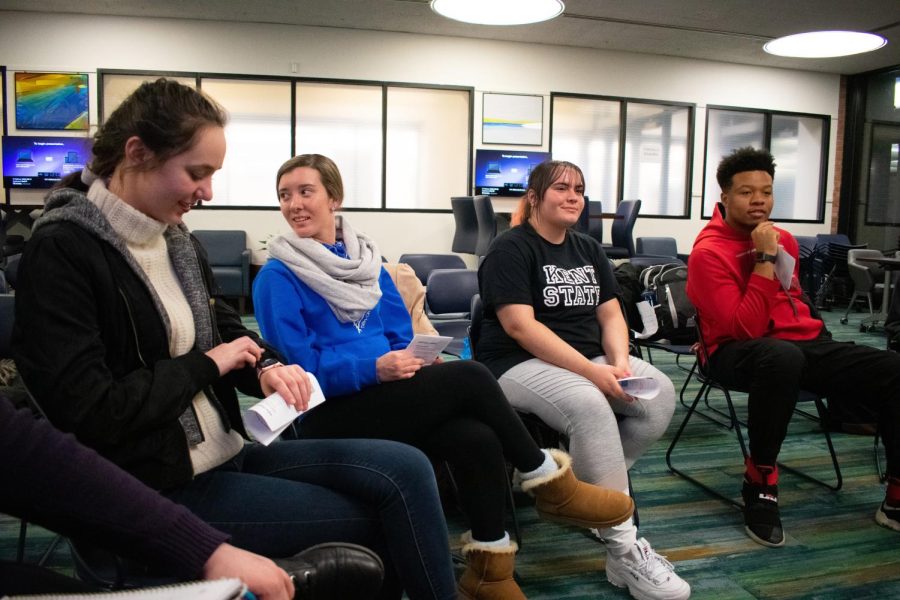KentTalks discusses #MeToo and issues on consent
February 13, 2019
Kent State Leadership hosted a KentTalks event discussing the #MeToo movement Wednesday.
The event allowed students to reflect on the different perspectives people have involving sexual assault and the #MeToo movement.
“KentTalks is going to allow you to have a better understanding of how to respectfully disagree with those of differing opinions,” said Meghan Factor-Page, associate director for Student Leadership Development and Programs. “Understand how to handle difficult situations and surrounding social justice situations.”
The #MeToo Movement began in 2006 to support survivors of sexual violence, as well as teaching people what community action looks like in the fight to end sexual violence. The movement has become sexual violence survivors supporting fellow survivors in their journey.
Students anonymously responded to a questionnaire about where they stood on consent, sexual assault and misconduct. The papers were then crumbled and thrown around the room and students picked up the papers and walked to corners of the room to represent the answers whether they agreed or disagreed.
Students also had the opportunity to talk in small groups about their past experiences and beliefs involving sexual assault in a safe space.
“I feel like in the small groups, it was very open for discussion and I wasn’t afraid to say anything because I knew I would’ve been respected and supported,” said Emily Spitale, a sophomore early education major. “I also felt an overwhelming feeling of support in general, that no one was going to judge anyone else and nobody was there for any ill intentions, they were just there to talk and hear everybody else’s opinions.”
While students were able to share their views, there is always the chance that their opinions will differ from someone else’s.
“(While) we might not agree with the perspective, we can at least understand the experiences that have shaped how they have come to understand the phenomena or concept,” said Christian Hightower, assistant director for Student Leadership Development. “We wanted to build this space around storytelling so that we humanize each other around these diverse topics.”
Students also understood that with the possibility of sharing their opinions, they are also exposing themselves to a vulnerable situation.
“We need that vulnerability to start to change culture, to start to change how the way we see victimization, to start to change how we see survivors,” said Jennie O’Connell, director for Center for Sexual & Relationship Violence Support Services (SRVSS).
Sara Crawford covers student politics. Contact her at [email protected].

























